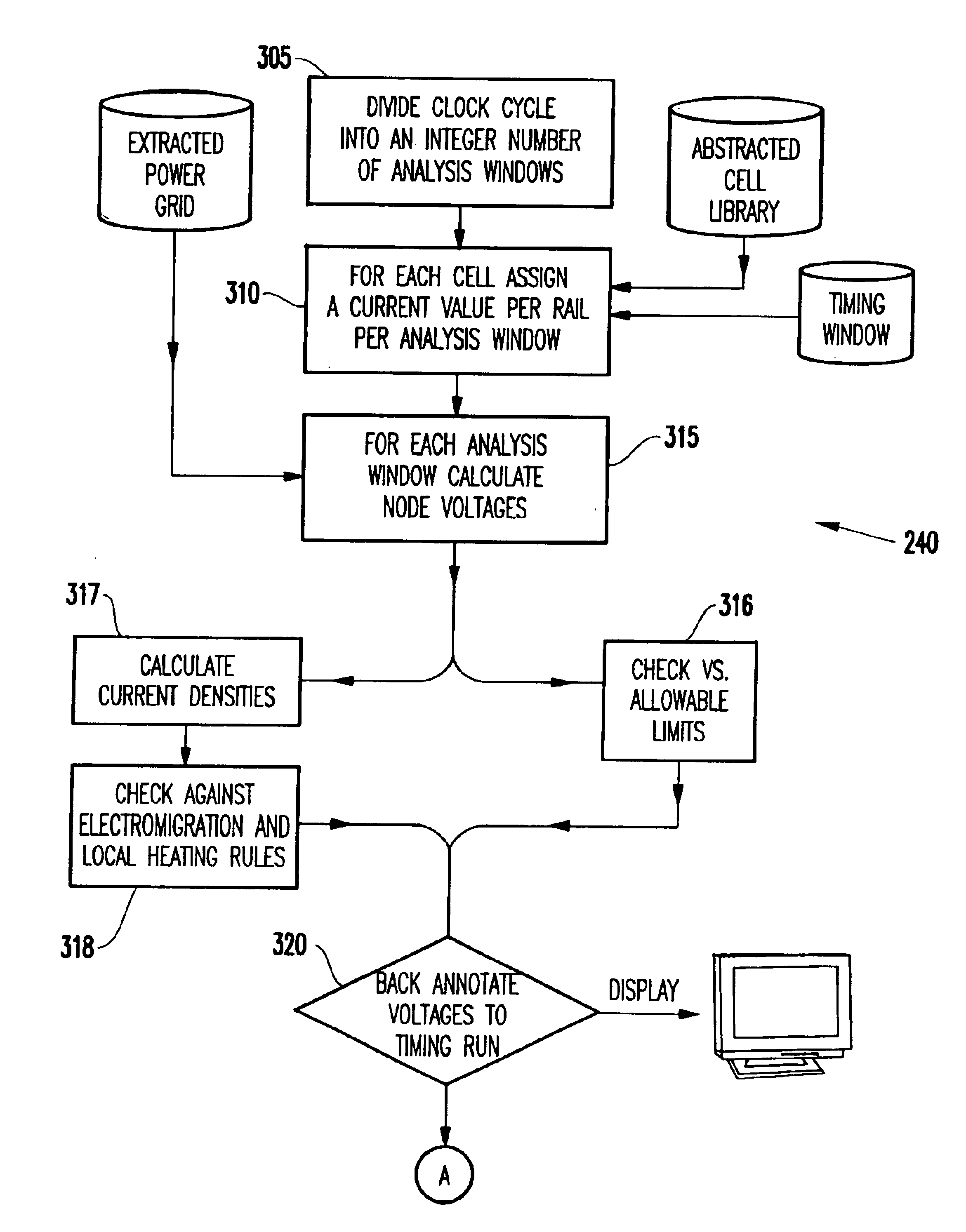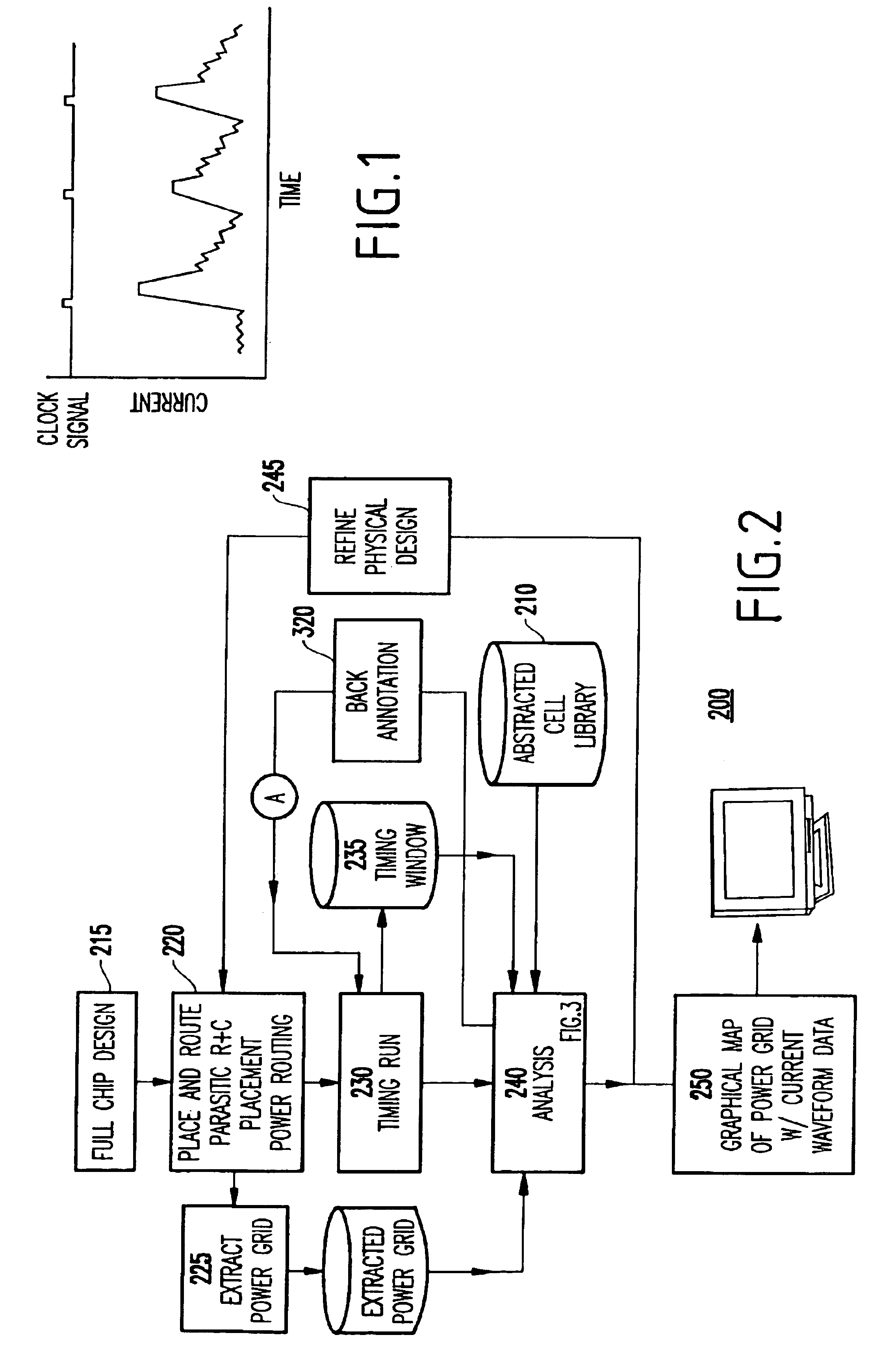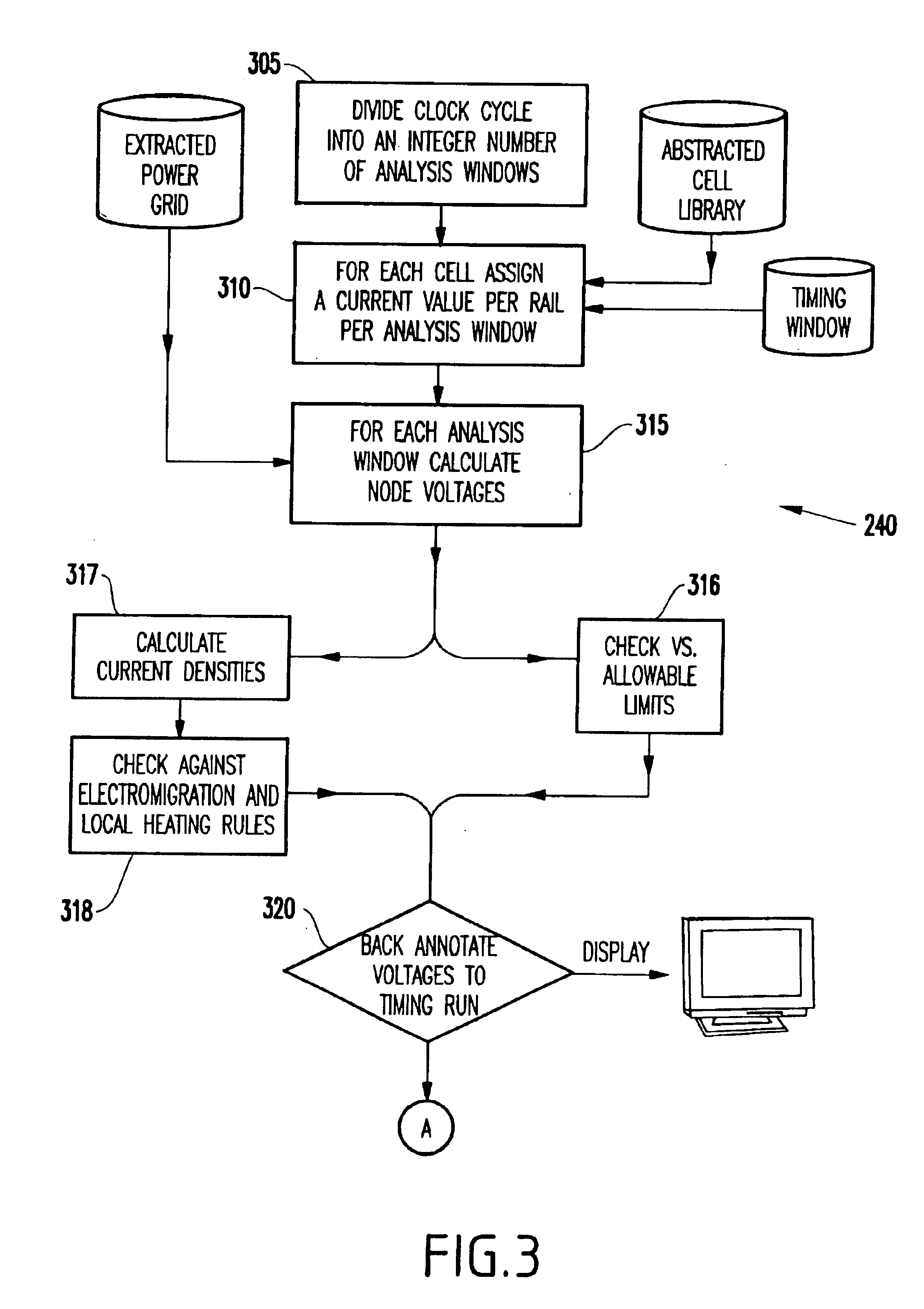System and method for analyzing power distribution using static timing analysis
a technology of static timing analysis and power distribution, applied in the direction of cad circuit design, program control, instruments, etc., can solve the problems of insufficient supply voltage, inoperable circuit, slow and, perhaps, inoperable circuit, etc., and achieve the effect of reducing the size of the chip and avoiding the problem of wiring congestion
- Summary
- Abstract
- Description
- Claims
- Application Information
AI Technical Summary
Benefits of technology
Problems solved by technology
Method used
Image
Examples
Embodiment Construction
Referring now to the drawings, FIG. 2 is a flow diagram illustrating a method 200 of analyzing power distribution according to the present invention.
As noted above, to perform power distribution analysis, a designer must know when and / or whether the various circuits on the chip will switch, which designers typically have no way of knowing with certainty. However, the inventors have discovered that the following assumptions can be made with respect to when and / or whether a given circuit on the chip will switch to provide a simple yet effective power distribution analysis:
1. All circuits are switching in the same direction at the same time. This may be refined to exclude circuits that cannot possibly switch within a given interval. No attempt is made to determine which direction a circuit is switching as this would require information about "patterns" which is often not available to the designer or the customer.
2. All circuits are switching in the same direction. First, it is assumed ...
PUM
 Login to View More
Login to View More Abstract
Description
Claims
Application Information
 Login to View More
Login to View More - R&D
- Intellectual Property
- Life Sciences
- Materials
- Tech Scout
- Unparalleled Data Quality
- Higher Quality Content
- 60% Fewer Hallucinations
Browse by: Latest US Patents, China's latest patents, Technical Efficacy Thesaurus, Application Domain, Technology Topic, Popular Technical Reports.
© 2025 PatSnap. All rights reserved.Legal|Privacy policy|Modern Slavery Act Transparency Statement|Sitemap|About US| Contact US: help@patsnap.com



